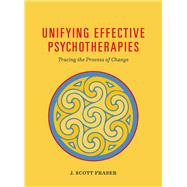Mental health professionals have long debated what makes effective psychotherapy work. Is it a specific treatment modality, or a set of common factors such as a strong therapeutic relationship? In this book, J. Scott Fraser argues that both perspectives are correct. His transtheoretical, transdiagnostic framework identifies the process of change that underlies all effective treatments.
From this viewpoint, all client problems boil down to negative, recurring cycles of thought and behavior. The goal of psychotherapy is to disrupt or reverse those cycles. While successful treatment requires common factors linked with specific interventions, these components must be embedded in a therapeutic rationale that implies a direction for treatment. There are many possible “correct” rationales, so finding the one that best fits the client and therapist is the task of treatment planning. The book uses varied and compelling case examples, featuring different client problems and treatments, to illustrate a common process of change.
Both philosophically rich and highly practical, this book helps readers understand the complexity and promise of psychotherapy.
From this viewpoint, all client problems boil down to negative, recurring cycles of thought and behavior. The goal of psychotherapy is to disrupt or reverse those cycles. While successful treatment requires common factors linked with specific interventions, these components must be embedded in a therapeutic rationale that implies a direction for treatment. There are many possible “correct” rationales, so finding the one that best fits the client and therapist is the task of treatment planning. The book uses varied and compelling case examples, featuring different client problems and treatments, to illustrate a common process of change.
Both philosophically rich and highly practical, this book helps readers understand the complexity and promise of psychotherapy.








